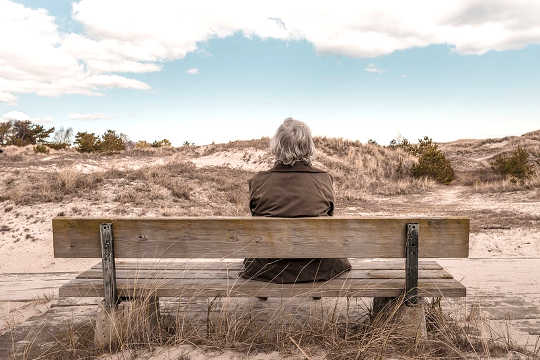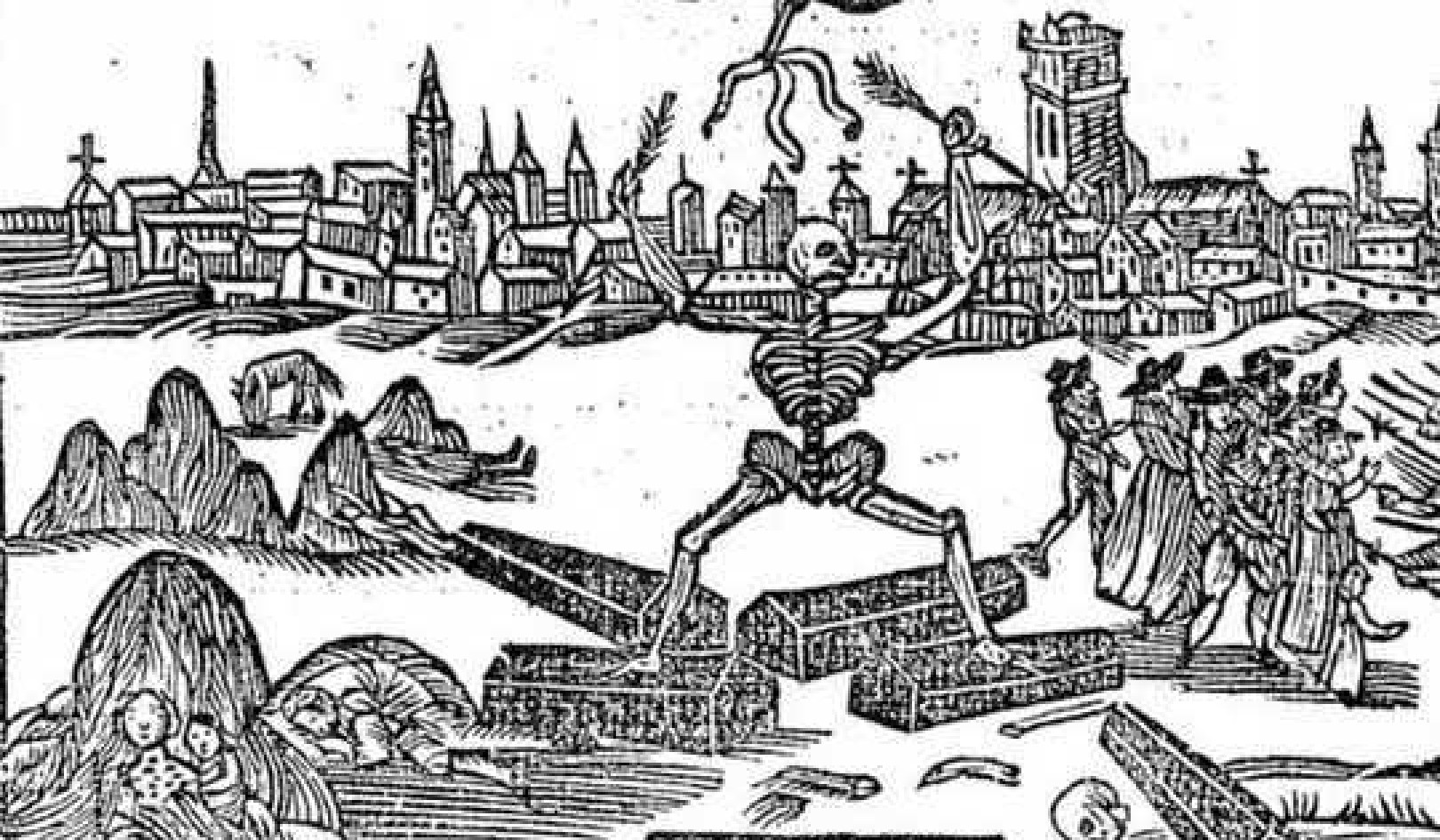
Image by Free-Photos
Navigating the way through the rugged waves of hot flashes, insomnia, depression, pain, and so on is about to become an easier, self-enhancing process. Instead of relying on what the latest remedy is for this or that symptom, you can determine what is appropriate for you and your body.
The Significance of Menopause
Let’s take a moment to discuss several misconceptions about menopause, aka “the change of life.” In Angeles Arrien’s book The Second Half of Life, she states, “Unfortunately, our culture’s current perspective is that the second half of life offers only decline, disease, despair, and death.”
Menopause is one of the most misunderstood emotional and biological phases of human life. Historically, women during this stage were routinely believed to be ill, crazy, or even dangerous! As Carol Karlsen explains in her book The Devil in the Shape of a Woman, most women blamed for practicing witchcraft during the Salem witch trials were postmenopausal, and it was often their own husbands who accused them.
The ancient Greek philosopher Plato viewed the uterus as an organ that wanders aimlessly through the body “blocking passages, obstructing breathing, and causing disease.” For centuries, the diagnosis of “women hysteria” was often treated by surgical removal of the uterus—hence the term hysterectomy (hyster = hysteria; ectomy = removal).
The ancients didn’t all share the same archaic view of menopause. Ptolemy of Alexandria (100–168 BCE) referred to it as a time when the accumulation of knowledge and life experience creates a desire to share what we’ve learned and express who we are deep inside. The Ptolemaic system divides life into seven phases/cycles, each correlated to a different planet. Jupiter, correlating with the sixth phase (ages fifty-five to sixty-seven), involves the accrual of wisdom and understanding through experience and the desire to share what we’ve learned. The seventh of the seven-year cycles in Asian philosophy associates this age group with similar qualities.
The Korean phrase for menopause, gaeng nyon gi, or the “year of renewal,” signifies the end of one major life cycle and the beginning of another. Gaeng nyon gi is compared with the two phases of plant growth: from seedling to sprout and then from the earth upward. As a seedling grows within the earth it is surrounded by darkness, resistance, and strife. Yet above the earth, although challenged at times, it no longer has to squeeze its way through the darkness, unseeing of what lies ahead.
Menopausal Orca Whales
Recent studies have shown how menopausal orca whales play an extremely important role as they lead the entire pod in hunting and navigating through the ocean. It is also common for the whale’s eldest son to accompany her at all times throughout his entire life. If we could interpret menopausal orca language, we might hear Mom saying things like? “Son, I keep telling you to get a life!” or “Is it me, or is the ocean getting hotter?”
Despite the emotional and physical challenges that life presents during this phase, there’s much more to menopause than aging. Actually, orcas and humans are two of only three known mammals that experience menopause, exemplifying that not only does life exist after menopause, but that every female—whale or human—has a profound role to play during this phase of life. Knowing what this role is doesn’t come easily for most.
Asking Questions at Menopause
Has menopause motivated you to ask, “What are my strengths/talents?” or “What role can I play now that I am past my prime?” There are numerous examples of women who accomplished their greatest achievements in life “past” prime.
Laura Ingalls Wilder, author of the Little House on the Prairie series, wrote her first book at age sixty-four. Julia Child, the famous author of Mastering the Art of French Cooking and television icon, didn’t even show interest in cooking until she was forty-nine. Mary Wesley, prolific English novelist, had her first book published at age seventy, with ten bestsellers in the last twenty years of her life. Susan Boyle, who had never before sung professionally, suddenly became a YouTube phenomenon at age forty-eight.
Fame and prosperity aren’t what I am advocating here; rather, it is the ability to discover and pursue your life’s path or purpose.
My Journey As A Male Doctor
You may be wondering why a guy like me is presenting himself as a menopause expert without being able to experience it firsthand himself. Well, if you are, I don’t blame you at all. Actually, never did I once anticipate writing a book about menopause before opening my clinic fifteen years ago.
My career started with the usual acupuncture treatments for back and shoulder pain, but I soon began to realize that more than 80 percent of my patients were women of menopausal age. After inquiring about pain, I’d routinely ask my patients if there was anything else they would like to address. It was like I had opened up a Pandora’s box! I was asked, “What can you do for hot flashes . . . insomnia . . . depression . . . libido . . . a lazy husband.”
Before I studied Sasang medicine, my background in traditional Chinese medicine left me trapped in a symptomatically focused perspective, emphasizing the use of herbs and acupuncture for symptoms like hot flashes, depression, insomnia, and so forth. “What about herbs and acupuncture to utilize the strengths and support the weaknesses of the individual behind the symptoms?” I’d ask myself. “My patients aren’t giant hot flash ovens or blobs of depression; they are people!”
As an intern, I remember being surprised when a formula had no effect or made a patient feel worse, even though it was chock-full of ingredients that addressed the patient’s symptoms. Sasang medicine explains how each of the yin yang body types has its own emotional and physiological strengths and weaknesses—the strengths giving them a natural advantage, the weaknesses leaving them prone to this or that symptom. This information, hidden beneath layer upon layer of coping skills, is often obscured. The discovery of your yin yang body type empowers you to make accurate health choices, avoid incompatible/unnecessary remedies, and focus on you.
Before discussing the yin yang body types, let’s take a moment to discuss five of the most common misconceptions that add to menopausal confusion regardless of your body type. No matter how much you try to avoid it, it’s easy to get trapped in one or more of these misconceptions, especially when you are suffering from pain or other discomfort. A smooth menopause transition depends on the ability to release fear and accept that you are entering a new phase of life, steering clear of dread, hopelessness, and despair.
Five Common Misconceptions about Menopause
1. My body is making me feel this way.
This is perhaps the most obvious misconception about menopause because Western philosophy and medicine have historically perpetuated a mechanical way of thinking about our body. Hormone levels may indeed be out of whack, but this is not what is causing you to feel uncomfortable. Don’t blame your body for how you feel; it is not your enemy.
Many women pass through menopause relatively symptom-free despite the fact that their estrogen levels have spiked and plummeted throughout the process. Sasang medicine emphasizes the significance of a mind and body integrative approach to addressing menopausal discomfort.
Your menopause comfort level depends entirely on your perception of the changes occurring within your body. Each of the yin yang body types has its own perception trap. For instance, the Yin Type A has a tendency to disconnect or turn away from pain and discomfort, while the Yin Type B may crouch in fear. The discovery of your yin yang body type makes it easier to recognize these tendencies and redirect them.
2. There must be an easy way out.
There may certainly be an easier way, but not an easy way out. The temptation to take a prescription drug or other quick fix remedy may be overwhelming when one is feeling miserable. There is a place for both Western and Eastern therapies in addressing the symptoms of menopause. Yet along with the assistance of herbs and/or prescriptions comes the responsibility of balancing emotions.
3. There’s something wrong with me that I just can’t figure out.
By eliminating the notion of “wrong,” there’s a much better chance that you’ll figure it out. Keep in mind that menopause is not an illness or disease but a new phase of life. It is less important to “figure it out” than it is to take your time and learn from the new experience, letting go of the “fix it” approach. There isn’t necessarily an answer to menopause; rather, it is a process of self-discovery that unfolds differently for each individual.
4. This does not have to do with me; it’s something/someone else that’s making me feel this way.
Menopause has everything to do with you; after all, it’s your journey! Granted, the menopausal phase often brings heightened sensitivity to stress, noise, emotion, and touch, but others are not to blame for these changes. Actually, sensitivity can be used to your advantage, inspiring the decision to set up a different sleeping arrangement or take an alternative route to work, encouraging more balance in life. Don’t wait for life itself to accommodate you!
5. My emotions have nothing to do with menopausal symptoms.
Sasang medicine holds that there’s an emotional component to everything we experience in life, including pain. It doesn’t claim that discomfort is simply “in your head,” but that the mind is capable of reducing and even eliminating pain and discomfort. True, this takes a tremendous amount of work, but it’s the ultimate path to optimizing health and well-being.
Sasang medicine describes how each of the yin yang body types has its own emotional tendencies that either contribute to misery or enhance our overall health. It emphasizes the ability of our emotional center, the heart, to change misery into joy, and pain into comfort.
Menopause and The Five Premises of Sasang Medicine
If any of the above misconceptions apply to your menopausal experience, then welcome to the club! About half of all women participating in a study at the University of Manitoba believed that menopause is a medical condition requiring medical intervention. It’s easy to fall into despair if you face menopause with the belief that you are ill and in need of medication.
Simply willing yourself free of the above misconceptions doesn’t make things easier. Keep in mind that falling into one or more of them will exacerbate menopausal symptoms. As you become familiar with the teachings of Sasang medicine, the ability to steer clear of these misconceptions will come naturally—as a process that unfolds slowly and consistently. So take ample time to get familiar with your yin yang body type and enhance your menopausal health, day after day. (Editor's Note: For a short introduction to yin yang body types, see "Depression, Anger, and Sadness as Related to Yang Body Types" or watch the video at the end of the article.)
Sasang medicine proposes a fundamental shift in thinking that emphasizes the power to change how we feel through self-understanding and self-cultivation. The following five premises of Sasang medicine can be applied not only to menopause but to any health situation.
1. The way you respond to menopause depends on the inborn inclinations of your mind and body. Each of us has different physical and emotional tendencies depending on which of our organs are hyper- and hypodeveloped at birth. Our hyperdeveloped organs correlate with stronger emotional tendencies, and the hypodeveloped ones with sensitized, less developed emotions. The Yin Type A, for example, radiates toward joy or cheerfulness, which is associated with her stronger liver, but if she cannot achieve or control this emotion, sadness, which correlates with her weaker lungs, will suffocate it.
2. Emotions move energy. Each of the yin yang body types has its own emotional inclination that determines how energy flows within the body. Balancing these emotions actually enhances the body’s ability to transition through menopause, encouraging hormone balance. Anger, for example, sends warm energy upward, while calmness guides cool energy downward. Since the yang types are prone to anger, flow to the upper body is stronger than flow to the lower body. If the yang types have difficulty controlling anger, weakness of the lower body ensues, while upper body pressure increases. This situation is referred to as hwa seung su gang, which means “heat ascending and cold descending”—the reversal of healthy energy flow.
Lee Je-ma, the founder of Sasang medicine, emphasized the importance of su seung hwa gang, “coolness ascending and warmth descending”—where energy flows smoothly throughout the body. Menopause is particularly challenging for the angry yang type, whose excessive upper body energies instigate hot flashes, anxiety, headaches, and high blood pressure. The calmer yang type is able to send ample cool energy down to her weaker lower body, cooling hot flashes and decreasing other menopause symptoms.
3. Each menopausal symptom has its own body-type-specific emotional and physiological source. According to Sasang medicine, every nook and cranny of the body has its own unique emotional affiliation. The lungs, for example, correlate with sorrow, the spleen with anger, the liver with joy, and the kidneys with calm. Emotions associated with our stronger organs are easier to control, while those correlating with our weaker organs easily lose their footing.
Lurking underneath symptoms like hot flashes, insomnia, headaches, and so on are emotions such as anxiety, anger, and/or sadness. Ignoring underlying emotions may be the reason why a particular symptom doesn’t improve despite our earnest effort. The first step in dealing with any chronic condition is to balance our emotions and expectations surrounding it. Fear feeds pain, and expectation almost always leads to disappointment.
Our symptoms aren’t the enemy. Don’t panic! Step back for a moment and reflect on your yin yang body type’s strengths and weaknesses, discovering how they influence your reaction to each menopausal symptom. Knowing why you feel a certain way makes it easier to take the appropriate action.
4. By getting to know your body-type-specific tendencies and making an effort to balance your innate energies, you are capable of alleviating menopausal symptoms. In the midst of despair, it is easier to believe in a doctor, pill, or tonic before trusting in our own natural ability to heal. There are numerous situations where medications and tonics come in handy, but even these cannot help without the support of the natural healing power within our bodies.
The first step to self-healing is self-knowledge, or the discovery of what our natural strengths and weaknesses are. Sometimes my patients resort to tonics like ashwagandha or ginseng for the sake of combating fatigue. These herbs stimulate the Yin Type B’s hypodeveloped spleen system but could harm the other types. After taking them, my Yin Type B patients not only feel energized but overall healthier too! But those who aren’t Yin Type Bs, even if they experience more short-term energy, eventually start to show signs of high blood pressure, palpitations, and/or anxiety. With the knowledge of your yin yang body type, these common missteps can be avoided.
5. Balance, and nothing else, is the essence of well-being. No matter how intense your hot flashes are, they will eventually go away once estrogen and progesterone reach an agreement within your body. During menopause, many women experience a dive in estrogen, and the other hormones are left to figure things out on their own.
As the disparities between hormones increase, so does the frequency and intensity of menopausal symptoms. Eventually estrogen and progesterone both decline significantly, closing the gap. Even at a bare minimum, estrogen, progesterone, and testosterone are fully capable of getting along despite the spats along the way.
Hot-flash relief comes sooner for some and later for others, depending not on body type or genetics, but on the ability to balance one’s body-type-specific emotional and physiological tendencies. True, estrogen and progesterone have an effect on your emotions, but how you feel emotionally also directly affects your hormone levels. The choice of whether to be controlled by or in control of your hormones is yours!
Familiarizing yourself with the misconceptions about menopause is like studying road signs in a driver education class. Even after years of driving, we may lose track of, take for granted, or simply ignore road signs or proper driving etiquette. It wouldn’t hurt to occasionally return to the misconceptions and premises, just to make sure that you’re on the right track.
©2019 by Gary Wagman, Ph.D. All Rights Reserved.
Excerpted with permission. Healing Arts Press,
a division of Inner Traditions Intl. www.InnerTraditions.com
Article Source
Yin Yang Balance for Menopause: The Korean Tradition of Sasang Medicine
by Gary Wagman Ph.D. L.Ac.
 Applying the wisdom of Sasang medicine to the major life transition of menopause, Dr. Gary Wagman explores how each of the four Sasang body types has its own unique menopausal challenges, as well as opportunities, and how the natural remedies and diets that work for one type might not work for another. Providing guidelines and tests to determine your type, he details each type’s emotional tendencies, physical strengths and weaknesses, and their balance of Yin and Yang energy within the organ systems, explaining why hot flashes occur when they do, why insomnia is suddenly an issue, or why you feel depressed. Revealing the impact our emotions have on our physiological health, he describes how different emotions, such as anger and sadness, correlate with a particular type’s inborn energetic patterns.
Applying the wisdom of Sasang medicine to the major life transition of menopause, Dr. Gary Wagman explores how each of the four Sasang body types has its own unique menopausal challenges, as well as opportunities, and how the natural remedies and diets that work for one type might not work for another. Providing guidelines and tests to determine your type, he details each type’s emotional tendencies, physical strengths and weaknesses, and their balance of Yin and Yang energy within the organ systems, explaining why hot flashes occur when they do, why insomnia is suddenly an issue, or why you feel depressed. Revealing the impact our emotions have on our physiological health, he describes how different emotions, such as anger and sadness, correlate with a particular type’s inborn energetic patterns.
For more info and/or to order this book, click here. Also available as an eTextbook.
About the Author
 Gary Wagman, Ph.D., L.Ac., is an acupuncturist and doctor of Oriental Medicine. He was the first foreign student at the Daejeon University of Oriental Medicine in South Korea and lived in Asia for more than 8 years. The founder of Harmony Clinic and the American Institute of Korean Medicine, he lives in Portland, Oregon.
Gary Wagman, Ph.D., L.Ac., is an acupuncturist and doctor of Oriental Medicine. He was the first foreign student at the Daejeon University of Oriental Medicine in South Korea and lived in Asia for more than 8 years. The founder of Harmony Clinic and the American Institute of Korean Medicine, he lives in Portland, Oregon.
























